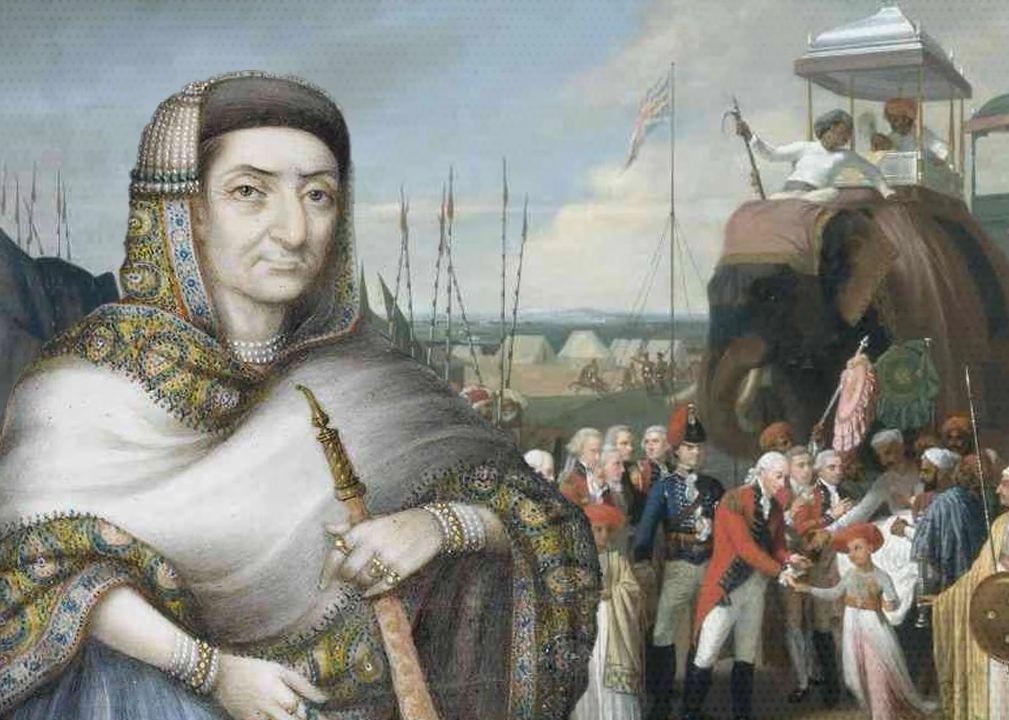
Women Entrepreneurs in Indian History: Begum Samru & Jibhabu
In a patriarchal society like India, where women were largely confined to domestic duties, it’s astonishing to find women who defied societal norms to make a mark in business and entrepreneurship. Begum Samru and Jibhabu are two such trailblazers who not only excelled in their respective fields but also left lasting legacies in Indian history. This blog post will delve into the remarkable stories of these two women entrepreneurs who ruled the business world in the 18th and 19th centuries.
Begum Samru: The Diplomatic Ruler of Sardhana
Born as Imhoff in 1753, Begum Samru was a German woman who rose to prominence in India during the 18th century. She was married to Khem Singh, the ruler of Sardhana, a region in present-day Uttar Pradesh, India. After her husband’s death, Begum Samru took over the reins of the region, ruling it with finesse and diplomacy.
Under her leadership, Begum Samru expanded the region’s trade and commerce, fostering strong relationships with neighboring kingdoms. Her diplomatic prowess helped her navigate the complex web of Indian politics, allowing her to maintain a 621-square km estate, making her one of the most powerful women in India during that era.
Begum Samru’s business acumen was matched only by her strategic leadership skills. She built a strong administrative system, ensuring the region’s stability and prosperity. Her reign was marked by peace and stability, which attracted merchants and traders from across the region. Her estate became a hub of commerce, with Begum Samru herself playing a key role in negotiating trade agreements and resolving disputes.
Jibhabu: The Negotiator of Gujarat
Born in the late 18th century, Jibhabu was a Gujarati woman who belonged to a family that had a long tradition of trade and commerce. Her family had been involved in the East India Company’s business, but after the company’s decline, Jibhabu’s family faced financial difficulties.
Determined to restore her family’s business, Jibhabu embarked on a mission to negotiate with the East India Company. She traveled to Bombay (now Mumbai) to meet with the company’s officials, armed with a deep understanding of her family’s business and a fierce determination to succeed.
Through her negotiations, Jibhabu managed to secure a deal that restored her family’s land revenue business. Her success was not limited to this achievement alone. She also played a crucial role in the development of Gujarat’s textile industry, helping to establish the region as a major hub of textile production.
Jibhabu’s business acumen was matched only by her negotiation skills. She was able to navigate the complex world of international trade, securing deals that benefited her family and the region as a whole.
Lessons from These Pioneering Women Entrepreneurs
The stories of Begum Samru and Jibhabu offer valuable lessons for women entrepreneurs today. These women defied societal norms, demonstrating that financial expertise and strategic leadership are not the exclusive domain of men. Their success was built on their ability to navigate complex situations, build relationships, and make informed decisions.
Their stories also highlight the importance of perseverance and determination. Begum Samru and Jibhabu faced numerous challenges during their careers, but they never gave up. Instead, they used their obstacles as opportunities to grow and learn.
In conclusion, Begum Samru and Jibhabu are a testament to the power of women entrepreneurship in Indian history. Their stories offer a fascinating glimpse into a bygone era, where women were making a mark in the business world. As we celebrate their achievements, we are reminded of the importance of women’s empowerment and the need to create an environment that supports and encourages women to pursue their entrepreneurial dreams.
Source:
https://ascendants.in/business-stories/pioneering-women-entrepreneurs-history/
Note: The article is based on publicly available information and is not meant to be a comprehensive or definitive account of Begum Samru and Jibhabu’s lives.






